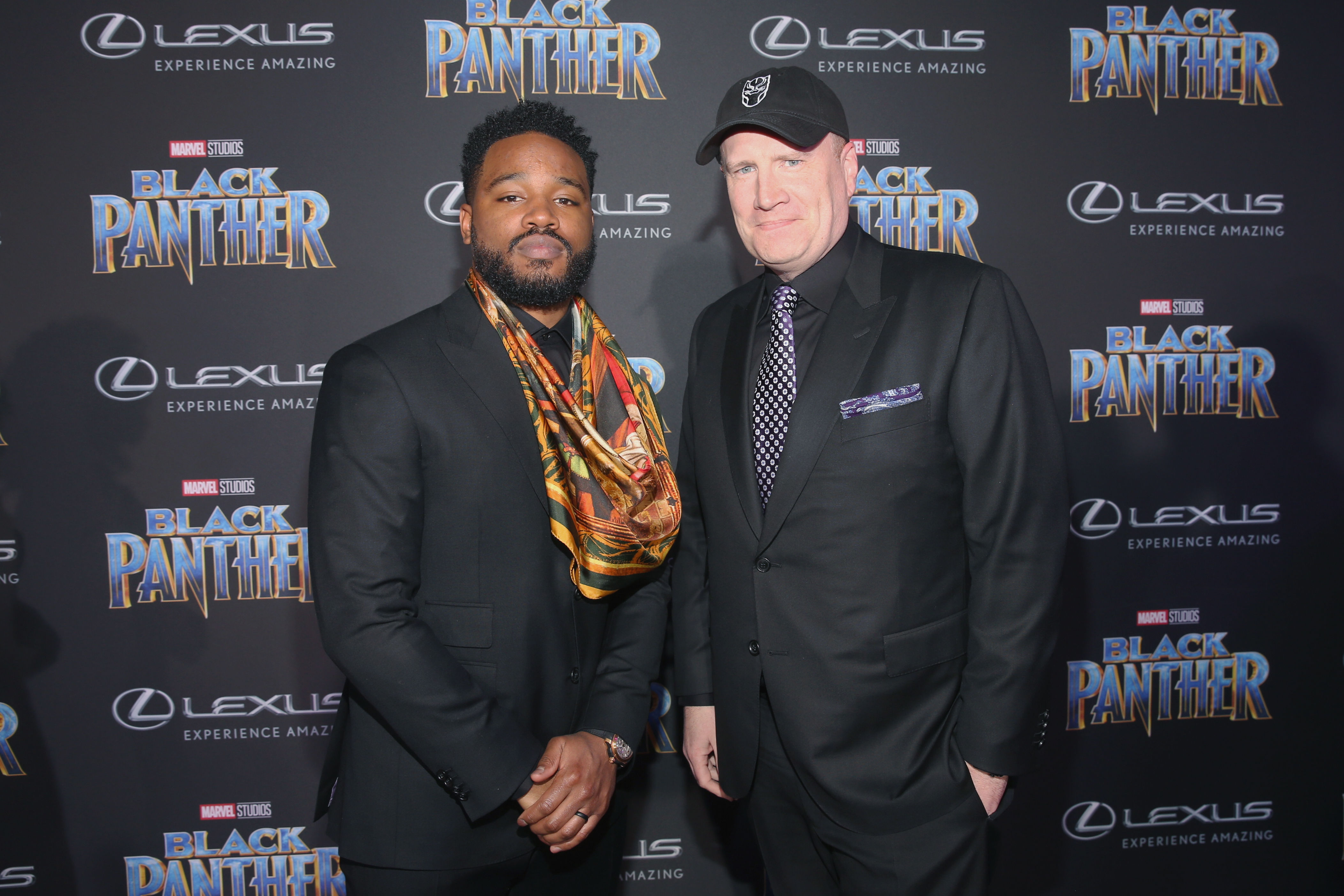Create a free profile to get unlimited access to exclusive videos, sweepstakes, and more!
Kevin Feige reveals the exact moment he knew Black Panther would be a phenomenon

Marvel Studios head Kevin Feige wanted to make a Black Panther movie for years, but there was one moment in particular that made him realize the Black Panther movie we got was going to be something truly special.
We've talked a lot over the last year about the cultural phenomenon that is Black Panther, and with good reason. The film was a box office success for Marvel Studios, yes, but that's true of just about every film the studio churns out. What set Black Panther apart was its immediate establishment as a kind of cultural touchstone of superhero media, particularly for African-American movie fans who'd been waiting for this kind of massive blockbuster to come along. The film's reach was so wide and its appeal ran so deep that people who wouldn't otherwise see a superhero film went back to the movies again and again, and the "Wakanda Forever" salute has become so mainstream that members of Congress are using it.
Now, Black Panther's yearlong journey of box office and critical glory, cultural impact, and rabid fandom will culminate in a trip to the Academy Awards, where the film is up for seven Oscars, including Best Picture. As Feige and company celebrate the Oscar nominations — and the first superhero film competing for Best Picture — the producer is reflecting on what made the film so special in the first place. In a new interview with The Hollywood Reporter, Feige was asked if there was a moment he could point to when he realized the film would be not just a hit, but a story that would speak to an audience "underserved" by the superhero genre. His answer keys in on a moment in Killmonger's (Michael B. Jordan) death scene.
"It was in those early discussions that we had with [director Ryan Coogler], that he had with Nate Moore, our executive producer at Marvel who brought him in to meet with us. And that amazing line, that he and his co-writer, Joe Robert Cole, wrote for Killmonger (Michael B. Jordan) as he lay dying outside the Vibranium mines looking over Wakanda. T'Challa says, 'I can try to heal you,' and he says, 'Why, so you can lock me up? Just bury me in the ocean with my ancestors who jumped ships, 'cause they knew death was better than bondage.' That was in the first draft. It was one of the best lines we ever read. We said, 'There are going to be a lot of revisions, but don't touch that line.' And Ryan said, 'That's the line I thought you'd tell me to cut.' And we said, 'On the contrary, keep it and build more of the movie around it.'"
Black Panther is, and was always going to be, a commercial blockbuster released by one of the world's biggest media conglomerates, but it also speaks to a certain kind of cultural identity that black viewers in particular weren't seeing in films like, for example, The Avengers. T'Challa's struggle to find out what kind of ruler he's going to be, and Killmonger's radical pushback against the traditions of his people, are part of a bigger discussion that other superhero films simply weren't having until Black Panther came along.
That these ideas were present in the very first draft, and that Feige and company were smart enough to see their importance, is a testament to the talent at work on the film.
Black Panther will be honored at the 91st Academy Awards Sunday, February 24 on ABC.


























